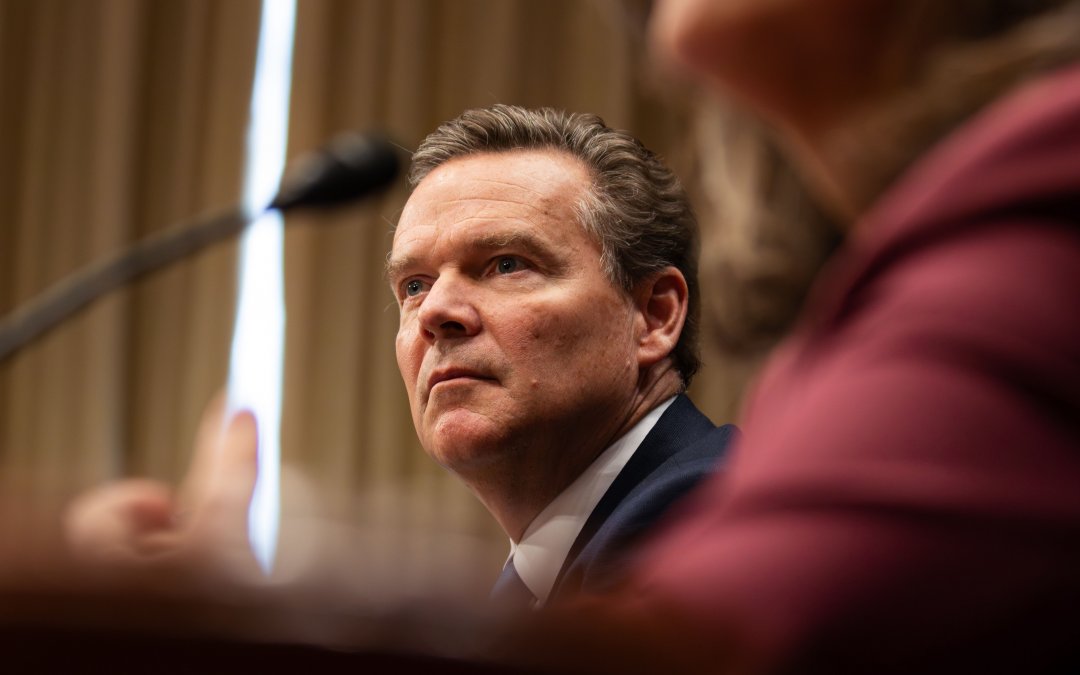WASHINGTON — At an Oct. 23 Senate Environment and Public Works Committee hearing, lawmakers discussed the benefits and disadvantages of stricter chemical regulation approvals from the Environmental Protection Agency (EPA).
Sen. John Curtis (R-Utah) established the tone of the hearing during his opening statement, emphasizing how regulatory delays can stifle innovation while recognizing the challenge of supporting American companies while protecting the environment. Sen. Jeff Merkley (D-Ore.) highlighted the responsibility to create good working jobs in his opening statement.
“Pollution isn’t partisan and addressing it is our shared responsibility,” Merkley said. “America should be a leader, not a follower, in protecting its workers and the environment.”
The hearing focused on the Toxic Substance Control Act of 1976 (TSCA), which requires the EPA to evaluate the risks of new and existing substances. Experts discussed how chemical regulation by the EPA under TSCA can hinder or drive technological advances, as well as potential health and environmental risks.
Dr. Tracey Woodruff, reproductive sciences professor at the University of California, San Francisco, said she wanted policymakers to understand the dangers of lax chemical regulation and consider how industries have lied about the harms their products pose.
“Once they’re (chemicals) out — you can’t take them back — and the result is that people could get sick and die,” Woodruff said. “EPA was established to protect the health of the public and the environment, not to increase corporate profits.”
A recurring subject was the possibility that strict regulation could influence American companies to conduct research and development overseas, like China and Southeast Asia.
“We do not need to be cutting corners,” said Peter Huntsman, the president and CEO of Huntsman Corporation. “But we need to have better focus, speed, transparency and reliable standards in order to compete.”
Dr. Gwen Gross, a senior technical fellow at The Boeing Company, said that Boeing has experienced challenges under TSCA research exemptions. Gross said that companies must submit chemicals for risk assessment to the EPA before approval to manufacture or import chemicals. Gross explained that delays in these approvals stall her work at Boeing.
Sen. Roger Wicker (R-Miss.) then asked Huntsman about concerns about defense development as a consequence of delays in chemical regulation.
“This is the most dangerous period we’ve had since World War II,” Wicker said. “And it’s not just Iran with their nukes, it’s China, it’s Russia, and this crazy guy that runs North Korea.”
Huntsman said when approvals by the EPA are slow, production of missiles and components of defense technology is postponed. He said that the chemical work Huntsman Corp. is conducting is in service to advancing science and environmental stewardship.
Subcommittee chairman Sen. Shelley Moore Capito (R-W.Va.) raised concerns about the pace and predictability of chemical regulation approvals. In recent years, the EPA has also struggled with understaffing, resulting in delays.
Still, Curtis thought the hearing was productive in reaching a consensus.
“When you bore down in it, we all want clean air, we all want clean water,” Curtis told Medill News Service. “How we get there is realizing each other’s perspectives.”
Others, like Merkley, ended the hearing echoing the same concerns.
“We need an effective chemical review system,” Merkley told Medill News Service. “I’m hoping to work with my colleagues across the aisle … We should all be pushing it together to greatly improve the review system by having it properly staffed.”

